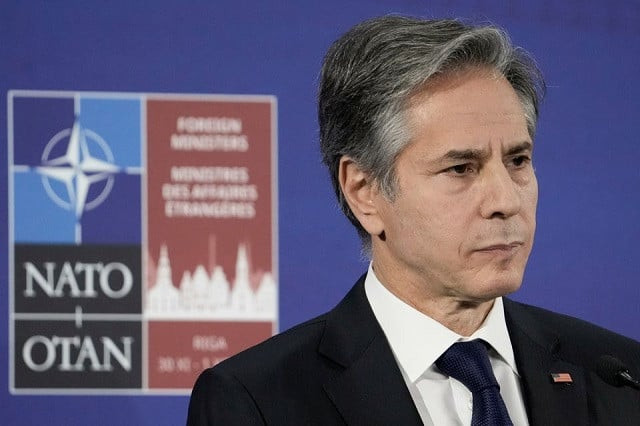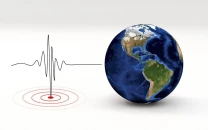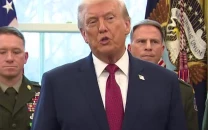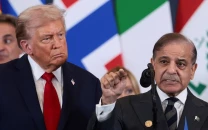'Don't panic': Germany, Ukraine push back against US warnings
Berlin warns against trying to guess or assume Russia's decisions on Ukraine

Germany's foreign minister warned Saturday against trying to guess or assume Russia's decisions on Ukraine, toning down the rhetoric after Washington's fierce warnings of an imminent invasion.
"We do not know yet if an attack has been decided on," Annalena Baerbock said on the sidelines of the Munich Security Conference, adding that the "threat against Ukraine is very real".
Ukrainian President Volodymyr Zelensky, attending the same conference, also pushed back against Washington's dire predictions.
"We do not think that we need to panic," Zelensky told the audience of top-level officials and security experts from around the world.
US President Joe Biden had said a day earlier that he was "convinced" Russian President Vladimir Putin had "made the decision" to attack Ukraine, sending fears soaring that a major conflict could break out in Europe.
Also read: China says US is exaggerating Russian threat to Ukraine
Baerbock made her remarks after hosting a G7 foreign ministers' meeting on the fringes of the Munich Security Conference, which has been dominated by the Ukraine crisis this year.
The group of seven world most developed nations reaffirmed that they were "united" in their support for Ukraine and determined to respond to any violation of its sovereignty, said Baerbock, whose country holds the rotating G7 presidency.
"Pull your troops back, avoid damage to Russia and Ukraine and let us talk," Baerbock said in an appeal to Putin.
But the message of unity was slightly undermined by Baerbock's refusal to echo US claims that Russia could invade Ukraine any moment now.
"In crisis situations, the most inappropriate thing to do is to somehow guess or assume," Baerbock told reporters, after being repeatedly pressed on whether Germany shared Biden's assessment.
Also read: Ukraine invasion could come 'any time' as Russia masses more troops, says US
"My urgent appeal to all is that we look closely at the facts on the ground", Baerbock said, warning against the risk of "targeted disinformation".
Speaking on the main stage in Munich, Zelensky said it was "difficult for me to judge" the US intel behind the warnings, but "I trust Ukrainian intelligence, who understand what's going on along our borders".
Zelensky also touched on the toll the incessant threat of war was taking on his country, both on people's mental health and on the economy.
"We need to preserve our stability. We need to keep calm and be adults," he said.
Western and NATO allies have been resolute in their support for Ukraine throughout the crisis, warning Russia of severe consequences in case of any further escalations.
Also read: Russia's military build-up near Ukraine is growing, not shrinking, warns West
Baerbock reiterated in Munich that Russia would face "unprecedented" sanctions, some of which would bring economic pain to the countries imposing them.
That includes potentially halting the not-yet-certified Nord Stream 2 gas pipeline between Russia and Germany, she said, an issue that had previously driven a wedge in transatlantic relations.
The project, backed by Germany's previous chancellor Angela Merkel, has long irked the United States and Germany's European partners, who believe it will be used as a geopolitical weapon by Putin.
Germany's early reluctance to explicitly put Nord Stream 2 on the list of possible sanctions exasperated allies, particularly Washington, and raised doubts about Berlin's resolve in the Ukraine crisis.
New Chancellor Olaf Scholz travelled to Washington earlier this month to reassure President Biden that Germany could be counted on, and made clear that the pipeline would be stopped should Russia invade Ukraine.



















COMMENTS
Comments are moderated and generally will be posted if they are on-topic and not abusive.
For more information, please see our Comments FAQ